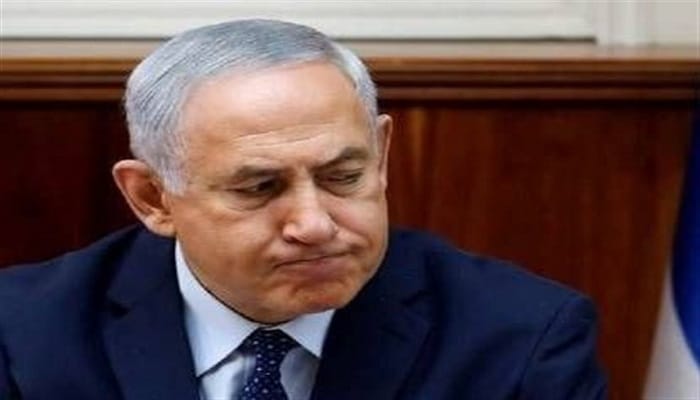PNN – A Hebrew-language media outlet discussed four scenarios for Israeli Prime Minister Benjamin Netanyahu’s escape from trial and imprisonment.
According to the report of Pakistan News Network, the Israeli TV Channel 12 wrote in a report on this matter: The US ambassador to Israel was also present at the last hearing of Netanyahu’s trial.
Prime Minister Benjamin Netanyahu was scheduled to conclude his testimony in court this week, with his trial set to begin after the summer break in early September. At the final hearing of his trial, which took place last Wednesday, US Ambassador Michael Hagabi made an unprecedented move to appear in court and criticize Netanyahu’s trial.
By doing so, he joined President Trump’s calls to drop the trial or reach a plea deal in exchange for Netanyahu’s guilty plea.
According to this Hebrew-language media outlet, what strategies does Netanyahu have to escape and escape trial, and what are his chances of success in this regard?
For this reason, we sat down with an expert in criminal law in Israel and posed this question to him.
According to Professor Robin, the first option is a plea agreement, which is carried out within the framework of an agreement that takes into account the risks of both parties.
Read more:
Sour relations between Tel Aviv and the Vatican; Netanyahu’s efforts did not work
In this framework, the prosecution presents the risk of the defendant’s innocence, and the defendant accepts the risk of conviction.
This agreement is usually reached when it is assumed that the reasons and evidence in the case do not end in favor of both parties, so both parties are willing to compromise.
Within this framework, the prosecution can reach an agreement with Netanyahu regarding cases 4000 and 1000, regarding bribery and breach of trust.
Although negotiations had previously taken place between the relevant parties in Netanyahu’s trial regarding a guilty plea, Netanyahu refused to accept it and refused to accept this scandal.
The second option is presidential pardon.
According to this expert, the power to pardon is solely vested in the President of Israel, and only he has the right to pardon. However, there is a difference of opinion among jurists regarding when the President of Israel can exercise this power. Some believe that he can do so now, but other jurists emphasize that pardons only make sense when a conviction has first been established.
The third option is to announce a stay of trial.
The prosecution has the authority to postpone proceedings for up to five years in criminal offenses, such as accepting bribes, of which Netanyahu is accused, during which time it will no longer be possible to resume the trial.
This action by the prosecutor means that a ban on prosecution has been issued for the defendant, while this is within the prosecutor’s authority, and efforts are currently underway to remove the Attorney General from his position.
The fourth option is to prohibit prosecution by the Attorney General’s Office.
According to the Criminal Procedure Code, the prosecutor can withdraw his indictment.
The party that has the authority to withdraw the indictment is the prosecutor. In the Netanyahu case, the Tel Aviv prosecutor’s office of the Tax and Economic Affairs Department has this authority.
However, information received indicates that all Israeli prosecutors agree that there is no reason to withdraw the indictment under the current circumstances, although it is expected that this disagreement will arise if the Israeli Attorney General Changes.

